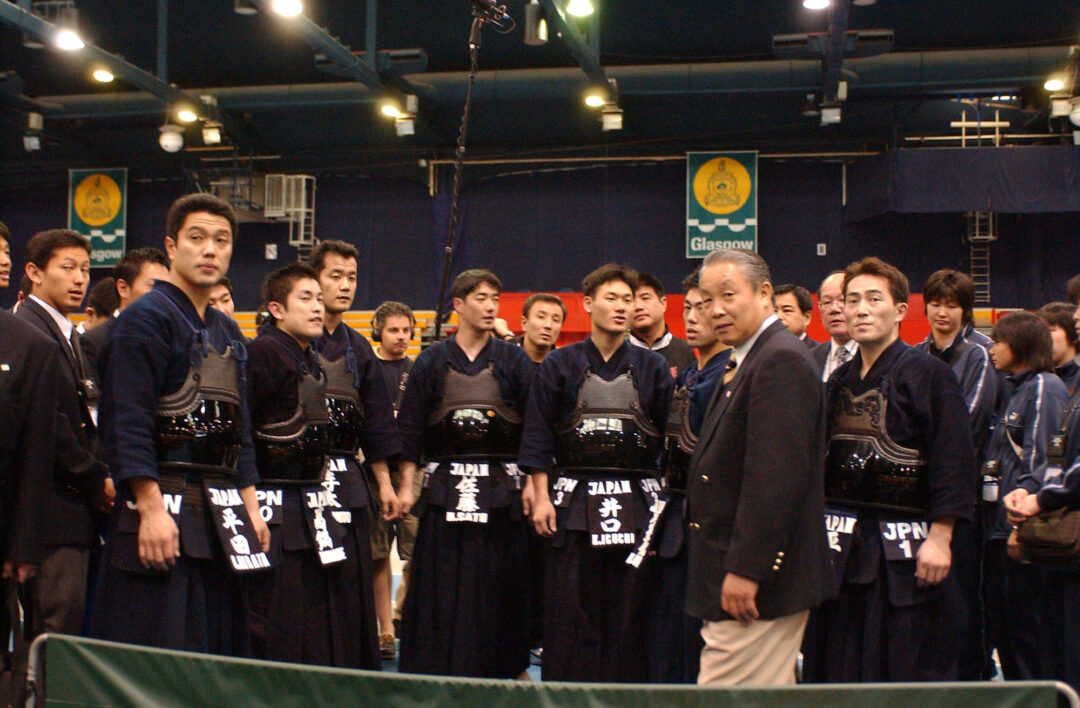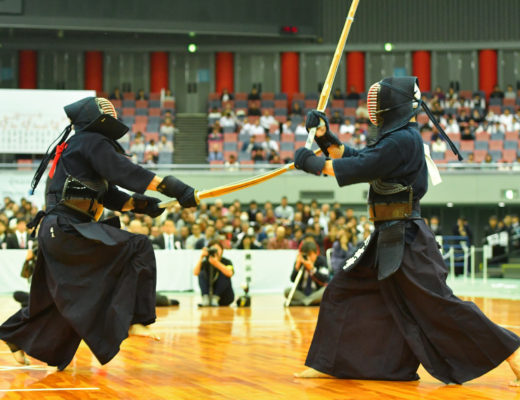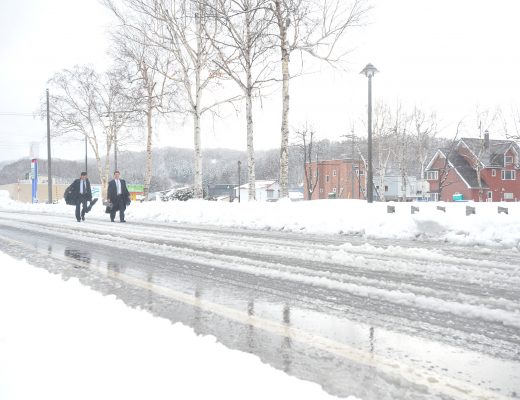2011.8 KENDOJIDAI
Composition: Teraoka Tomoyuki
Photography: Tokue Masayuki
Translation: Pepijn Boomgaard
Teramoto Shoji
Born on April 17, 1975, in Kumamoto Prefecture. Went to Kumamoto Institute of Technology High School (currently Buntoku High School) and International Budo University. After graduation, he joined the Osaka Prefectural Police Department. Made the Japanese national team three times in a row, winning both the individual title and team title as captain at the 14th World Kendo Championships in Brazil. With his flowing swordsmanship, he has conquered all national titles, including the 55th All Japan Championship. He is unanimously recognized as one of Japan’s top competitors.
Takanabe Susumu
Born on August 16, 1976, in Kumamoto Prefecture. Went to PL Gakuen High School and the University of Tsukuba. After graduation, he joined the Kanagawa Prefectural Police Department. First became a member of the Japanese national team at the 12th World Kendo Championship in Glasgow, and represented Japan for many years. His Men strike is said to be the best in Japan. He won the All Japan Championship for the first time in 2010.
Takabane won their first encounter with two points
They both immediately recognized each other’s strength
You both hail from Kumamoto Prefecture. Do you remember when you first met?
Takanabe: I can’t say I remember the moment we met.
Teramoto: I don’t remember either, but I have known of “Takanabe Susumu” since I was in elementary school. We had a match once when we were in junior high school, right?
Takanabe: That’s right.
Teramoto: I lost by two points.
Takanabe: But we were both Taisho, and the match had already been decided before we faced each other, as Teramoto’s team was very strong.
What were your impressions of the match?
Takanabe: To be honest, I don’t remember much. Sorry.
Teramoto: I clearly remember. Takanabe’s Kendo had been highly regarded since elementary school. People always said he was exceptional. During the match I lost by two points, I thought I struck him, but all three flags went up for Takanabe’s Men, which should have started later than mine. It was the first time I felt the referees were wrong. At that movement I realized he was special (laughs).
Did you exchange any words?
Takanabe: I don’t think so.
Teramoto: The first time we talked might have been in Katsuura, when I was in my fourth year of university.
Takanabe: Oh, you might be right.
Teramoto: Before I graduated from the International Budo University, Takanabe came to Katsuura to practice. We had not faced each other since that match in junior high school.
Takanabe: In university, I had the opportunity to see Teramoto’s Kendo multiple times. Of course, I thought he was strong, but when I actually practiced with him, I was overwhelmed by his strength. His Kendo is big and he has a long reach. It made me rediscover the Kenshi “Teramoto Shoji”.
You seem to be very close now. How long has that been the case?
Takanabe: We really started talking at the All Japan Kendo Federation training camp. We entered at the time.
Teramoto: It was right after the World Championships in Santa Clara. We were close in age, so we always shared a room. We did a lot of preparation together. Until we really started talking, I thought that Takanabe was a genius who could easily win just by doing something. I thought I was as good as him in my attitude towards Kendo. However, when spending time with him, it turned out this was not the case. I felt that his serious attitude towards Kendo was wonderful.
His attitude?
Teramoto: For example, he’s very particular about Shinai and Bogu, and I have seen him sincerely worry about Kendo. He asked me so many questions that it made me think, “You’re asking me, even though we are competing to be in the national team?” Seeing Takanabe’s attitude made me think, “If even a genius Kenshi is this worried about Kendo, what should I do?” A weak player needs to consider their attitude in order to win, but this strong person is thinking about it even more. I felt that I was losing, and I did not want to lose.
Takanabe: Teramoto has a lot of things that I do not, so I was genuinely interested in him. I decided to ask him as much as I wanted. Although we have different affiliations, I want to take what I can from wherever I can in order to improve myself.
Do you consider each other as rivals?
Takanabe: I don’t. Rather than a rival, he is a senior I look up to. But I often think about him during practice. Miyazaki Masahiro Sensei always says, “It’s naive to train while thinking about your partners. Even if it is just a single Suburi, think about your rivals all over Japan.” Hearing this, Teramoto is the one who comes to mind.
Teramoto: The word rival conjures up an image of being evenly matched, but I have always trained thinking about how I can beat Takanabe. Although he is one year younger than me, I felt that he was ahead of me. Getting into the ring with Takanabe and defeating him has always been one of my motivations.
Sutemi and the love of Kendo
The rest of this article is only available for Kendo Jidai International subscribers!





